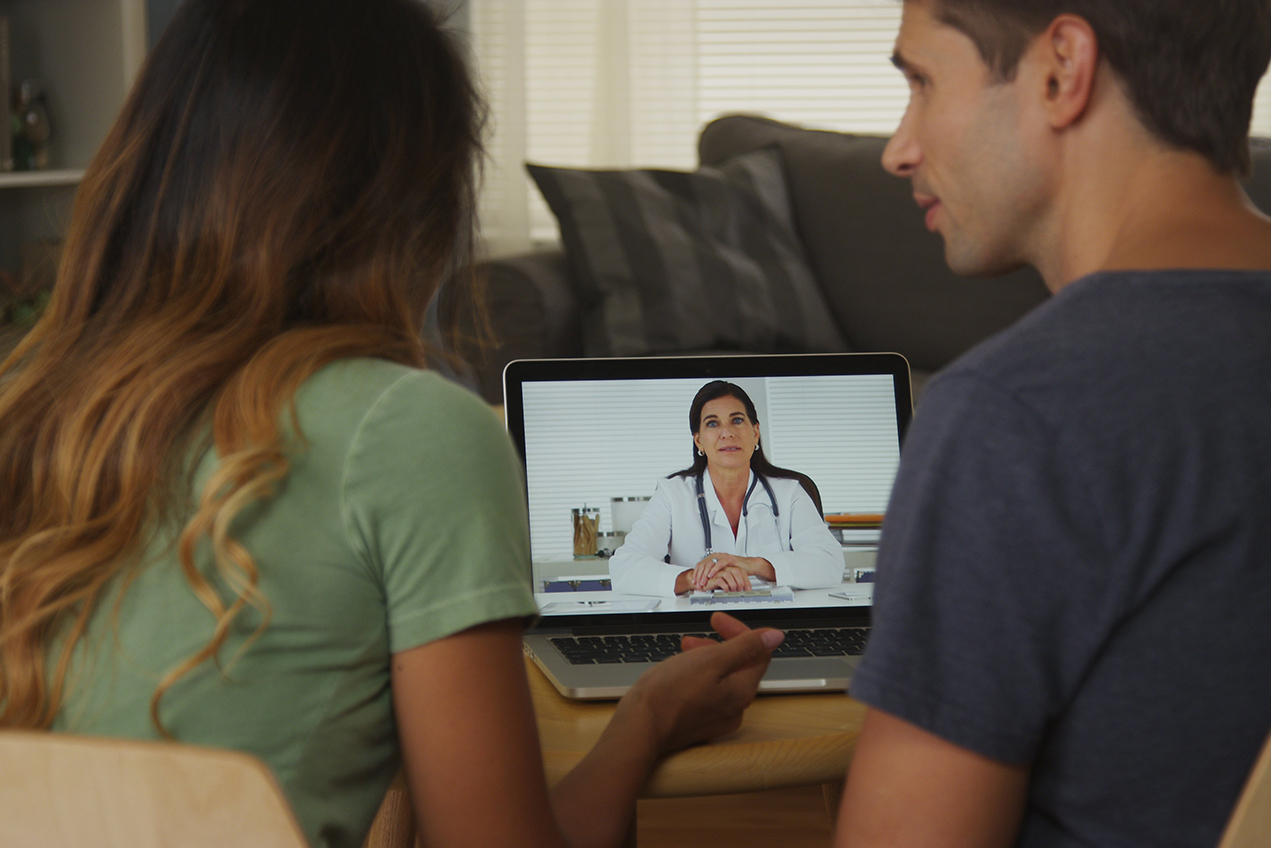As one of the clinicians in the Cancer Survivorship Program at USC Norris Comprehensive Cancer Center, Yasmeen Khan, PA-C, guides patients through their next steps after completing their cancer treatment. By sitting down with each patient, she is able to help each person understand the care plan their physicians carefully crafted, to keep them healthy in the years after treatment.
Reviewing this care plan is an important part of their care. And now, patients have a new option for these critical visits: They can do them from the privacy of their home or office via telemedicine.
Telemedicine visits are an excellent option for cancer survivors, Khan noted, because patients’ visits generally involve reviewing their individualized care plan, answering questions and discussing concerns. They typically don’t need tests or other interventions that require an in-person visit.
“It is important to value their time and their life,” she said. “They have gone through some pretty tough treatment and this is a way to give them more control over their time and space.”
David Freyer, DO, MS, director of the Cancer Survivorship Program at USC Norris and professor of clinical pediatrics at the Keck School of Medicine of USC, added that the telemedicine option aligns with the goals of the program, which is to give former patients the ongoing support they need and provide continuity of care to the large and growing population of cancer survivors.
It isn’t only for cancer survivors, however. Telemedicine visits are being offered to ever larger numbers of patients across Keck Medicine of USC. Unlike other video conferencing systems, Keck Medicine’s telemedicine system is HIPAA-compliant and allows the clinician to load notes from the appointment to the patient portal.
Paul Craig, RN, JD, chief administrative officer of Keck Medicine of USC, said the adoption of telemedicine is part of Keck Medicine’s ongoing efforts to provide care that is patient-centered, making health care more easily accessible and more convenient.
“We want virtual care, or telemed, to be very patient and family-centered,” Craig said. “It isn’t just to increase efficiency, but also to deliver care in an expanded way that is consistent with the way people are living their lives.”
Craig noted that many of Keck’s Medicine’s patients live outside of Los Angeles, or even outside of California, and so coming in for follow-up visits can be difficult. Even for patients who live in Los Angeles, fighting traffic, taking time off work and arranging care for children are all reasons they may want to choose to have some visits via telemedicine.
Certainly, not every medical visit should be done remotely, but there are times when it is appropriate. Some patients who have had surgery now can do some of their post-surgical visits via telemedicine. Telemedicine allows physicians to evaluate patients in a way that is not possible on the phone because of the visual advantage: care providers can evaluate the patient’s range of motion, or check wounds for infection, for example.
Some of the physicians at Keck Medicine also are using telemedicine to help other physicians in community hospitals evaluate and treat their patients. In this way, Keck Medicine’s doctors act almost like a second doctor in the examination room, offering specialized expertise that may not be available to patients outside of academic medical institutions.
Since telemedicine was launched at Keck Medicine, physicians have conducted more than 2,000 virtual visits. Many more telemedicine options will become available across a range of services offered.
“Telemedicine is just one piece of Keck Medicine’s digital health strategy, which also includes e-consults for community physicians, voice-activated health information apps and more,” said Dilip Parekh, MD, professor of clinical surgery at the Keck School and chief clinical officer for Keck Medicine Provider Network and Digital Health. “We are committed to developing new technology that allows us to deliver medicine in new ways that make accessing services more convenient for patients and our colleagues at other hospitals.”
Afsaneh Barzi, MD, associate professor of clinical medicine at the Keck School, who spearheaded the adoption of telemedicine at USC Norris, added that the program also is exploring additional ways to use telemedicine both for current cancer patients and for consultations with colleagues at other hospitals.
Barzi added that while convenience was a factor in adopting telemedicine for former cancer patients, he believes it also may help them psychologically.
“Survivorship is part of the patient’s cancer journey where they are returning to their normal life,” Barzi said. “Providing telemedicine is another way of reassuring them, because they don’t have to come to the hospital. It is empowering to this specific population.”
— Hope Hamashige


